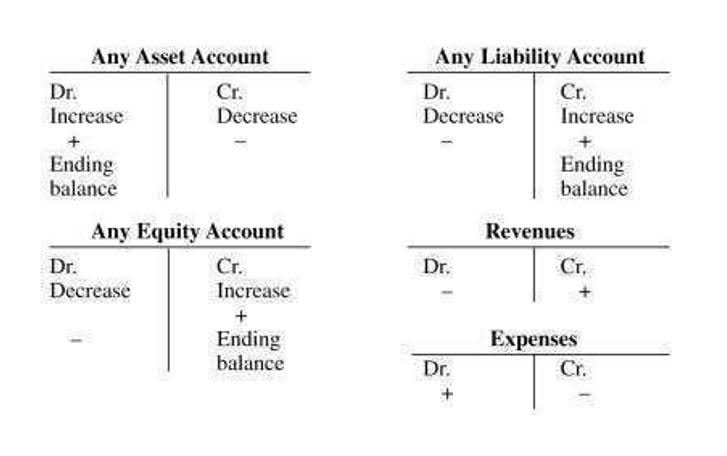
Employees work overtime because this is a way they can increase their take-home salary. Though the overtime pay of each company depends on their company policy, each company must follow the fair labor standards act. Overtime refers to the hours worked by an employee that exceeds their regular work schedule. Most employees have fixed hours in a week that they have to work for.
How to calculate OT pay

A common misconception is that salaried employees are automatically exempt from overtime. Whether or what is overtime not someone is entitled to overtime depends on how they’re classified under the Fair Labor Standards Act (FLSA). Next, calculate the employee’s regular pay and overtime pay separately. According to the FLSA, a work week has 40 hours, which are 8 hours for five days.

Overtime Laws: A Complete Guide for U.S. Employers (
You must spend no more then 20% of your time doing other activities (or 40% in a retail environment), and your job should be a salaried position. Executives, administrators, and other professionals earning at least $455 per week do not have to be paid overtime under Section 13(a)(1) of the Fair Labor Standards Act. You need to check your local laws for any limits as to the amount of overtime an employee can legally work. Currently, you must withhold, remit, and report taxes on overtime income to the IRS. If the bill passes, you would likely continue withholding, remitting, and reporting taxes as normal.
Step 1: Determine if your employees are eligible for OT pay.
Employees cannot waive their right to overtime pay.Only public employees are eligible for time off instead of being paid overtime under federal law. This is commonly known as “comp time” or “exchange time.” This time off must be credited at the rate of at least 1.5 hours of time off for each hour of overtime worked. An employer may not require a worker to take comp or exchange time — it is at the worker’s request. Private employers cannot enter into these agreements.There are many exemptions to the overtime rule in Washington. The federal overtime laws require employers to compensate employees at least time and a half or double time for the extra time they put in.
- Salaried employees are only exempt from overtime if they meet both the salary threshold and specific job duties tests under the FLSA.
- Annual overtime is the total number of extra hours an employee works outside their normally scheduled working time in a year.
- Building a proactive compliance system not only reduces legal risk — it also fosters a workplace culture of fairness, transparency, and trust.
- You must remit all withheld taxes to the proper agencies and report income and taxes on Form 941 and each employee’s W-2 form.
- Employees work overtime because this is a way they can increase their take-home salary.
What do employers need to do if a no tax on overtime bill passes?

Some states have additional overtime laws you must follow as an employer. The eligibility is subject to state regulations, but the FLSA requires that all employers compensate their employees for extra hours worked beyond the normal working time. According to the British Government, overtime is defined as any work done beyond the normal working https://www.bookstime.com/articles/debt-service-coverage-ratio hours outlined in your employment contract. While employers in the UK are not required to pay extra for overtime work, they must ensure that your overall average pay meets the National Minimum Wage. The company’s overtime policy must clearly state the reporting time and working hours for all employees along with provisions relating to leaves and holidays.
- While some states have daily overtime limit which entitles any employee who works for more then a certain number of hours in a single day to be paid overtime, Washington does not specify a daily overtime limit.
- The overtime rate of pay varies between companies and by specifics of the overtime, such as the number of overtime hours worked.
- If your employer owes you overtime pay, a Department of Labor office in Washington will work with you to ensure you receive your fair wages for all hours worked.
- Work done on Saturdays, Sundays, holidays, and regular days of rest is not considered overtime unless the organization clearly states that in the employment contract.
- The standard workday, according to many labor law regulations, is eight hours, and a workweek comprises 40 hours.
- Any additional compensation for working nights or weekends is typically based on agreements between the employer and the employee.
Federal overtime laws

You need to have a good employment lawyer to avoid any unnecessary disputes over overtime provisions and laws. Only actual hours worked count toward the 40-hour threshold for overtime. PTO, sick leave, holidays, and vacation time are excluded when calculating overtime eligibility. If any of these tests are not met, the employee must be classified as non-exempt and paid how is sales tax calculated overtime for hours worked over 40 in a week. Overtime laws are one of the most misunderstood areas of employment compliance — and one of the most expensive to get wrong. Whether you’re managing hourly workers, salaried staff, or a hybrid team, knowing when overtime kicks in (and how much it costs you) is crucial for staying compliant and protecting your bottom line.
- Maternity leave is a leave of absence from work for mothers following the birth, adoption, or foster care placement of a child.
- The FLSA defines overtime as any work beyond 40 hours in a workweek.
- Again, under the FLSA, you must pay nonexempt employees overtime pay.
- These may include daily overtime thresholds, double time pay, seventh-day premiums, or industry-specific protections.
- Senate Finance Committee chairman, said the bill “delivers additional tax relief to middle-class families still recovering from record inflation under the Joe Biden administration.
Experience Next-level Employee Engagement

While not every employer in these industries is out of compliance, these numbers show where violations are most commonly found during investigations. Employees should track hours carefully, and businesses should review their payroll practices to stay compliant. But staying compliant isn’t always easy — especially in industries where long hours, low wages, and high turnover are common.
